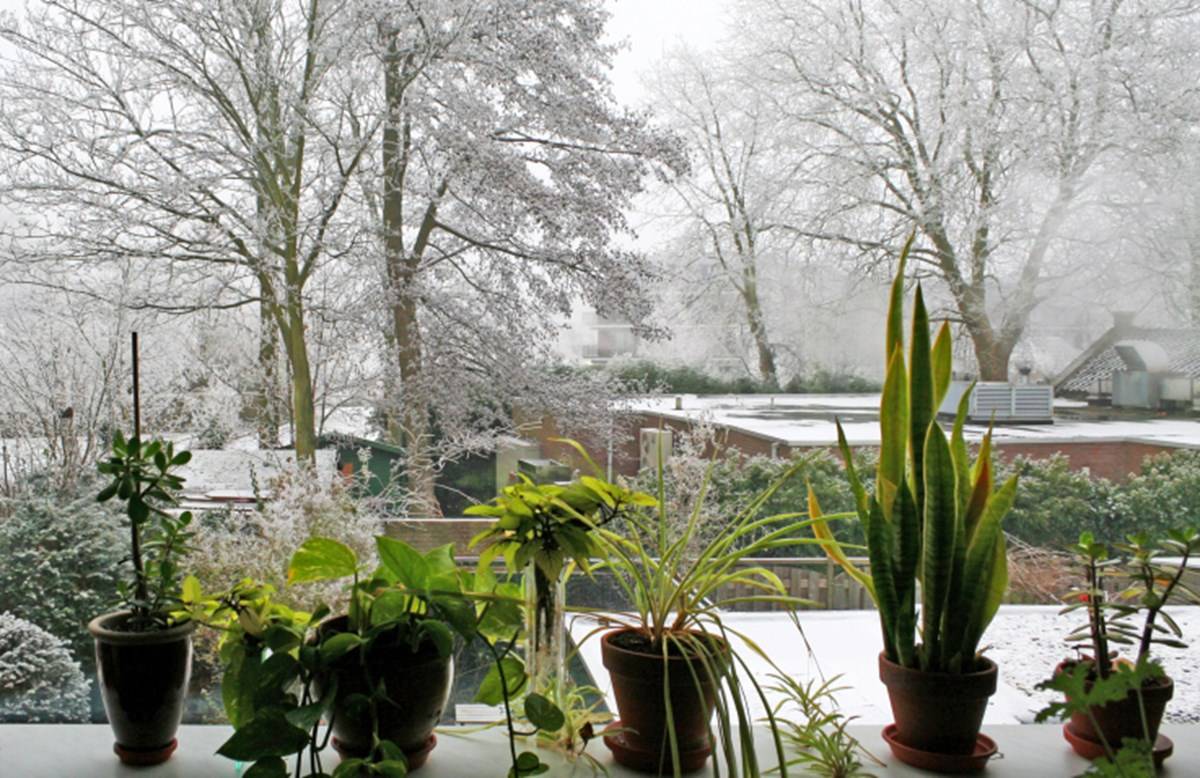
Winter has arrived, and the days are already getting colder and shorter-as well as darker. A change in season also means a change in how your plants behave, what they need, and how they grow. Preparing your garden for winter, like any other season, is critical, especially if you live in an area that experiences harsh winters.
Let's first look at what your plants go through during the winter and what changes you can expect to see:
-
As the temperature drops, so does the hormonal activity in your plants, and they go dormant, halting their growth for the most part. So don't be concerned if your plant doesn't sprout any new leaves or grows significantly in size during the winter months.
-
Some sun and summer-loving plants, such as Ficus microcarpa, may shed a few leaves as temperatures drop. But don't worry, if the shedding is purely seasonal, the leaves will regrow when the sun returns and the temperature rises.
-
If you want your home garden to be colorful even in the winter, incorporate winter flowering plants such as Pansies, Hollyhocks, Asters, and many others.
-
Winter is also pest season. If you notice unexpected spider webs, white cottony growth under leaves, or small flying insects hovering around your plants, it's time to be on the lookout and take precautions. So, every time you water your plants, keep an eye on them.
Preventive Steps:
-
In the winter, avoid shocking your plants. There will be no repotting or soil changes.
-
Prune your summer plants in the early winter to make room for new growth in the spring.
-
To protect the roots, add organic matter before winter and mulch the topsoil if your area has harsh winters. If you can't find mulch to protect the soil, sphagnum moss is a great alternative.
-
Plants should be huddled together to create a microclimate of warmth and humidity. Keep the smaller, more delicate plants in the center and the larger, more established plants around the perimeter.
-
Keep your plants away from direct draughts from air conditioners and room heaters. Also, keep them away from doors and windows that open frequently and let in gusts of cold wind during the day to lower the plants' ambient temperature.
-
As a preventative measure, spray your plants with neem oil every two weeks. It's easier to keep pests at bay than it is to get rid of them.
-
Reduce your watering frequency. Before watering your plants, make sure to check the topsoil. As the light intensity decreases and the plants enter a dormant state, so does their water requirement. Furthermore, water loss through surface evaporation is low, lowering water requirements even further.
Finally, let's look at what steps you can take to winterize your gardens.
-
Remove any yellowing or diseased leaves. Winter is also a major season, and diseased leaves can serve as a breeding ground for them.
-
Remove any weeds that may have grown during the growing season to prevent weeds from leaching nutrients.
-
Prepare your soil for spring planting by amending it. Fill in the gaps with manures, compost, bone meal, and so on. It allows the soil to absorb all of the nutrients and be ready for spring planting.
-
If you have flower bulbs in your garden, now is the time to dig them up and divide them before winter arrives. This prevents overcrowding and allows them to flower beautifully during the season.
-
Winter is also an excellent time to start germinating vegetable seeds indoors. Seeds can be difficult to germinate outside due to dipping temperatures, so start them indoors where it is warmer.
These steps are simple but necessary for getting your garden ready for the season. The cold months of winter always lead to the bountiful season of spring, and it is critical to plan ahead of time for it.









